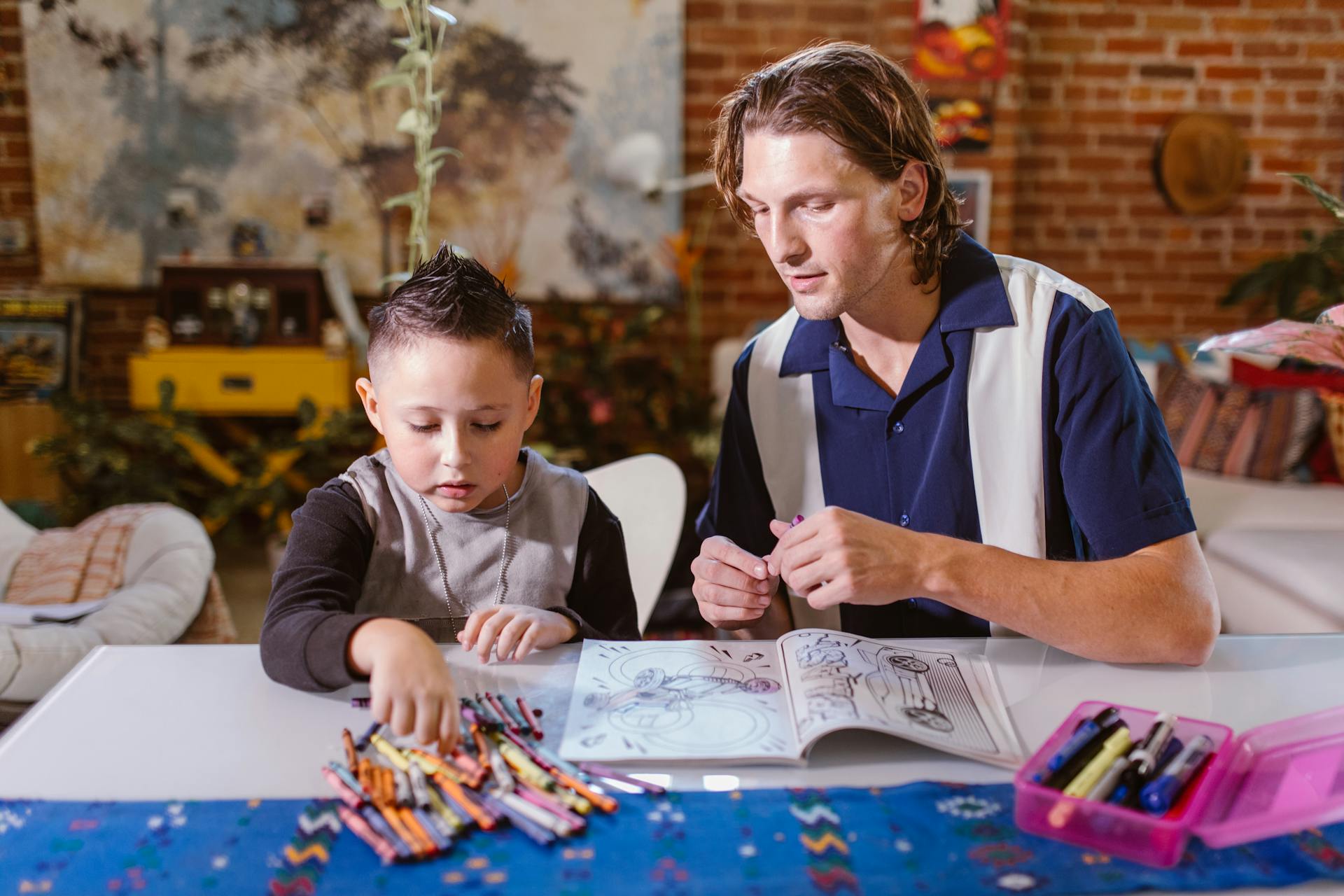Critical thinking skills are more valuable than ever in today’s fast-paced world. These essential abilities empower children to analyze information, solve problems, and make well-informed decisions. By nurturing critical thinking early, we equip our kids with invaluable tools for success in school and life.
This comprehensive guide will explore engaging activities that foster critical thinking in kids.
We’ll dive into the “why” behind cultivating these skills and provide a treasure trove of ideas to make learning fun and rewarding.
Critical thinking is analyzing information objectively, considering multiple perspectives, and making rational judgments. It involves skills like reasoning, evaluating evidence, identifying logical fallacies, and drawing well-supported conclusions.
For kids, critical thinking lays the foundation for academic success, problem-solving abilities, and effective decision-making throughout their lives.
Why Critical Thinking Matters for Kids
In a 2018 Reboot Foundation survey, 20 percent of respondents said – critical thinking skills are best developed early when children are ages 5 and younger. This is why it’s essential to develop this skill earlier.
Developing critical thinking skills in children offers numerous benefits:
- Improved academic performance: Critical thinkers can better comprehend complex concepts, analyze information, and apply knowledge to new situations.
- Enhanced problem-solving abilities: Kids learn to approach challenges systematically, consider alternative solutions, and make informed choices.
- Better decision-making: Critical thinking helps children evaluate options, weigh consequences, and make decisions based on logic and evidence.
- Increased creativity and innovation: By questioning assumptions and exploring multiple perspectives, kids develop creative thinking and innovative approaches.
- Stronger communication skills: Critical thinkers can articulate their thoughts clearly, consider different viewpoints, and engage in thoughtful discussions.
Fun Critical Thinking Activities for Kids
1. Problem-Solving Puzzles
Puzzles are engaging and entertaining tools to develop problem-solving skills. From jigsaw puzzles to logic puzzles like Sudoku or KenKen, these activities challenge kids to think critically, analyze patterns, and find creative solutions.
2. Storytelling and Analyzing Books
Reading and analyzing stories can be a powerful way to foster critical thinking. Ask thought-provoking questions about the characters’ motivations, plot events, and moral dilemmas. Encourage kids to predict outcomes, draw inferences, and support their opinions with evidence from the story.
3. Brainteasers and Riddles
Brainteasers and riddles are fun brain exercises that stimulate logical reasoning and creative thinking. These bite-sized challenges encourage kids to think outside the box, consider multiple perspectives, and develop mental flexibility.
4. Coding and STEM Projects
Coding and STEM (Science, Technology, Engineering, and Math) projects offer hands-on opportunities for kids to apply critical thinking skills. From building robots to designing computer games, these activities require problem-solving, logical reasoning, and analytical thinking.
5. Debates and Discussions
Engaging kids in respectful debates and discussions on age-appropriate topics can sharpen their critical thinking abilities. Encourage them to research different viewpoints, evaluate evidence, and articulate their arguments clearly and logically.
| Activity | Description | Critical Thinking Skills |
|---|---|---|
| Problem-Solving Puzzles | Jigsaw puzzles, sudoku, logic puzzles | Analytical thinking, pattern recognition, perseverance |
| Storytelling & Book Analysis | Reading books, discussing characters, predicting outcomes | Inference, perspective-taking, evidence evaluation |
| Brainteasers & Riddles | Word puzzles, lateral thinking challenges | Creative thinking, flexible thinking, problem-solving |
| Coding & STEM Projects | Building robots, designing games/apps | Logical reasoning, problem decomposition, debugging |
| Debates & Discussions | Exploring different viewpoints on topics | Argument analysis, evidence evaluation, communication |
Tips for Encouraging Critical Thinking at Home
- Model critical thinking: Demonstrate how to analyze information, consider different perspectives, and make well-reasoned decisions in your daily life.
- Ask open-ended questions: Instead of simple yes/no questions, encourage kids to explain their thought processes and justify their answers.
- Encourage curiosity and questioning: Celebrate when kids ask “why” or challenge assumptions, and encourage them to explore different viewpoints.
- Provide opportunities for hands-on learning: Engage kids in experiments, projects, and real-world problem-solving situations.
- Celebrate mistakes: Emphasize that mistakes are opportunities for learning and growth, fostering a growth mindset and resilience.
TL;DR
Developing critical thinking skills in kids is crucial for their academic success, problem-solving abilities, and effective decision-making.
Fun activities like puzzles, storytelling, brainteasers, coding projects, and debates can cultivate these essential skills.
By encouraging curiosity, open-ended questioning, and hands-on learning at home, parents can nurture their children’s critical thinking abilities, setting them up for lifelong success.
Q&A
Q: What is the difference between critical thinking and problem-solving?
A: While closely related, critical thinking and problem-solving are distinct concepts. Critical thinking involves analyzing information, evaluating evidence, and making reasoned judgments, while problem-solving focuses on identifying and finding solutions to specific challenges.
Q: At what age should parents start fostering critical thinking skills in children?
A: Parents can start introducing critical thinking activities from an early age, as young as 3 or 4 years old. However, the complexity of the activities should be adjusted based on the child’s age and developmental stage.
Q: Can critical thinking skills be taught, or are they innate abilities?
A: While some individuals may have a natural inclination towards critical thinking, these skills can be taught and developed through practice and exposure to appropriate activities and experiences.
Critical Thinking Quiz
Let’s put your critical thinking skills to the test! Answer these questions to see how well you’ve grasped the concepts covered in this blog post.
1. Which of the following is NOT a benefit of developing critical thinking skills in children?
a. Improved academic performance b. Enhanced problem-solving abilities c. Better memory retention d. Stronger communication skills
2. True or False: Puzzles and brainteasers are effective ways to cultivate critical thinking skills in kids.
a. True b. False
3. Which of the following activities encourages kids to evaluate evidence, consider different viewpoints, and articulate arguments?
a. Coding projects b. Debates and discussions c. Storytelling d. Jigsaw puzzles
4. According to the blog post, what should parents do to model critical thinking at home?
a. Demonstrate how to analyze information and make well-reasoned decisions b. Encourage kids to ask “why” and challenge assumptions c. Provide opportunities for hands-on learning d. All of the above
5. True or False: Critical thinking skills are innate abilities that cannot be taught or developed.
a. True b. False
Answers: 1. c. Better memory retention 2. a. True 3. b. Debates and discussions 4. d. All of the above 5. b. False
Scoring Interpretation: 5 correct answers: Excellent! You’ve mastered the concepts of critical thinking and how to foster these skills in kids.
3-4 correct answers: Good job! You have a solid understanding of critical thinking activities for kids, but there’s still room for improvement.
1-2 correct answers: It seems you need to review the information on critical thinking and the importance of developing these skills in children.
0 correct answers: Don’t worry, with practice and exposure to the right activities, you can improve your understanding of critical thinking and how to nurture it in kids.





